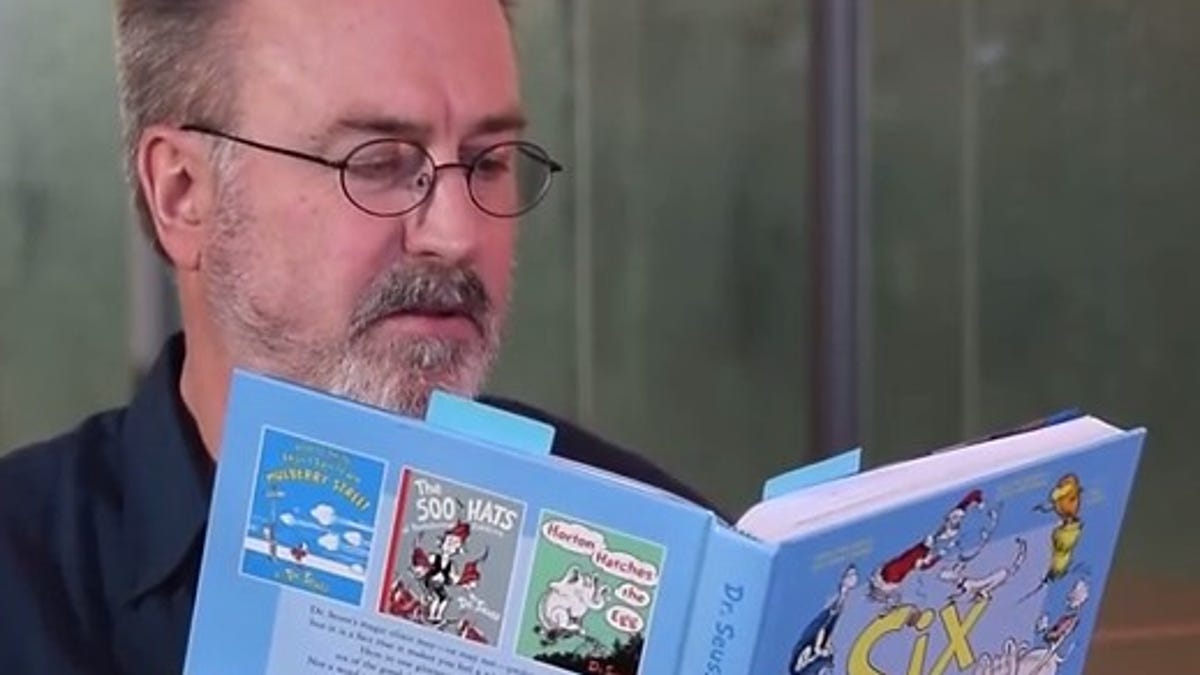The math of humor: Why 'snunkoople' makes you squeal
A mathematical formula that predicts which words people find funny might not get its own Comedy Central special, but it does offer insights into the human mind.
While humor is completely subjective (except for anything Ricky Gervais says -- he's objectively hilarious), scientists say they've come up with a quantifiable theory of what's funny. The bottom line: if you're trying to elicit laughs, consider tossing around the words "snunkoople" and "hablump" more often.
Well, it doesn't have to be those words, exactly. Other made-up words will work too. Specifically, say the authors of a new study, made-up words with improbable letter combinations have a better chance of getting lolz, or at least chuckles. The study, "conducted out of pure curiosity," according to its lead author Chris Westbury, nonetheless could have implications for detecting how those with brain damage or mood struggles experience humor. The research could also inform product naming.
"This really is the first paper that's ever had a quantifiable theory of humor," said Westbury, a psychology professor at the University of Alberta in Canada. "There's quite a small amount of experimental work that's been done on humor."
The study, which appears in the most recent issue of Journal of Memory and Language, stemmed from earlier research in which subjects with the communication disorder aphasia were asked to determine whether strings of letters were real words. During that exploration, Westbury and a colleague observed that participants often laughed upon hearing certain made-up nonwords. The Dr. Seussian and B.J. Novakian "snunkoople" struck people as particularly amusing.
"We asked many people casually over a number of years if they found the string 'snunkoople' humorous, and most did," Westbury told CNET's Crave blog. "Eventually we decided we would see if we could figure out why."
Further experiments confirmed Westbury's hypothesis that it's possible to use a word's entropy, a mathematical measure of how ordered or predictable it is, to draw general conclusions about what sort of words people find funny. The researchers discovered that made-up words with lower entropy -- that is, words that are statistically less probable or less like real words -- were perceived as more amusing.
"So if you look at a Seuss word like yuzz-a-ma-tuzz and calculate its entropy, you would find it is a low-entropy word because it has improbable letters like Z," Westbury said.
The idea that humor correlates with incongruity and surprise isn't new, but this study claims to be the first quantitative test of German philosopher Arthur Schopenhauer's 1818 theory that humor results from violated expectations.
What do these guys find so funny? Clearly, it's the low-entropy words.
"The most important finding was not just that some nonwords are funny and they're weird when they are, but that there's actually a consistent relationship between how funny they are and how weird they are," Westbury said. "We showed there was a linear relationship."
While it's unlikely sitcom writers will start tossing sniglets into their scripts, the findings do offer some hints about how to construct or assess other simple forms of humor, Westbury said.
"On the other hand, the vindication of Schopenhauer's theory also explains why developing a truly scientific understanding of real humor would be very difficult," he added. "When you start looking at real jokes or real comedy acts, you can begin to understand how varied the kinds of expectation violations being used are. Real humor is amazingly complicated."
Nonwords for the study were randomly generated by software called Lingua (Language Independent of Neighbourhood Generator of the University of Alberta) developed for psycholinguists. For the first part of the study, 56 test subjects fluent in English were asked to compare two nonwords and select the option they considered to be more humorous. They then were shown a single nonword and asked to rate its humor quotient on a scale from 1 to 100.
"None of the nonword strings was deliberately constructed to be funny, Westbury said. "Rather, they were randomly constructed and selected systematically to cover the range of improbability, with no human intervention in the selection. Hardly any of them are laugh-out-loud funny."
Thus the name of the research paper, "Telling the world's least funny jokes: On the quantification of humour as entropy," which contains such not-too-hilarious phrases as "the fact that random between-group correlations (in the between-group case) exceed zero probably reflects the distribution of the judgments."
Still, Westbury says a number of the nonwords declared funny by the math did strike him that way. Among them: "wommy," "papple," "folibbysm," "wipsy," "quaribbly," "jumemo," and "finglysiv," to name more than just a few.
So... why did the wommy cross the road? To get to the quarribly of course. Your mileage on that one may vary.


